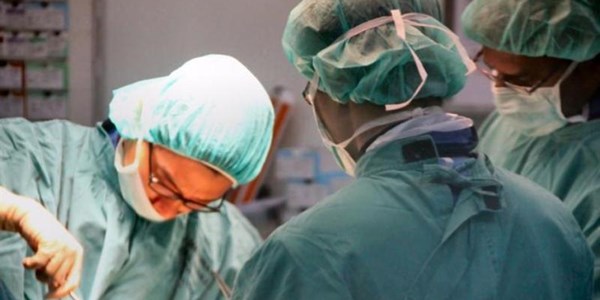Human Interest
Before the penis transplant - radical transplants of note─── 14:56 Mon, 16 Mar 2015

Before the first successful penis transplant was performed in South Africa, there were a few other organ transplants that made headlines.
It was not really that long ago when the first successful organ transplant took place. But now surgeons can chop and change an amazing variety of body parts.
A South African team of surgeons have claimed the first successful penis transplant. The procedure was attempted before in different countries, but even when transplants were successful, the body ended up rejecting the new organ. A 21-year old South African man was far luckier - it has been three months since he received a new penis in an operation during December and everything appears to be fine. Having lost his original organ in an initiation school accident, the man has regained nearly full function, including erections, passing urine and ejaculation.
Face/off
Our ability to transplant a face has become so good that it might become a regular occurrence at some hospitals. But not to paint this as a simple procedure: face transplants are highly specialised and can still easily fail. Still, in 2005 surgeons performed the first partial face transplant and five years later Spanish doctors accomplished the same with a whole face, replacing that of a man shot in a hunting accident. Since then such operations have taken place in other countries as well. But the procedure really goes back to the mid-nineties, when Indian surgeons reattached the face of a child after a wheat thresher tore it off. Yet face transplants have led to strange complications: recipients often take a long time to adjust to their new faces, if they adjust at all.A new womb
Many women suffer from womb complications, scuppering hopes of having children. In some cases, they don’t have a womb at all. But there is now an option: a womb transplant. In early 2014, a team of Swedish surgeons transplanted wombs into 12women. Though two of the patients’ bodies rejected the organs, several more managed to become pregnant, and at least one patient had their first baby later in the year. More births are expected from the new wombs in 2015. The interesting thing is that the age of the womb is not that important: the womb that helped created the first baby from the experiment was from a 61-year-old woman.Replacement hands
Last year, a man received not one, but two new hands. It shows how far medical technology has come - the first attempt at a hand transplant happened in the 1960's, yet success only arrived in 1999 when American surgeons replaced a hand lost during a fireworks accident. Soon afterwards Austrian doctors replaced both hands of a bomb disposal expert, who celebrated by taking a round-the-world trip on a motorbike. Today surgeons can transplant whole arms and more recently it is common to keep a severed limb alive by attaching it to another part of the body. For example, the hand is grafted to your leg until surgeons can put it back onto your arm.The power of poop
This one sound gross, but it is actually incredibly interesting. Fecal transplants are not as complicated as other types of transplants, as it doesn’t involve surgery. Instead fecal bacteria are taken from a donor and placed into a patient’s body. Why would anyone do that? Our bodies are home to incredible colonies of micro bacteria which manage and manipulate all types of bodily functions. In one case, a woman was suffering from intestinal infections and constant diarrhea. She lacked certain microorganisms which could be found in her husband’s feces. A transplant of the bacteria was the cure: within a day her diarrhea had stopped and the infection also soon disappeared. But it’s not all that safe: several patients who underwent the procedure soon experienced massive weight gain as the new bacteria changed how their bodies work.Organs have memories
The most radical of transplant stories is actually not about the transplant itself, but a strange consequence. Though still a highly controversial idea, there is more and more evidence that some donors received more than just an organ. They appear to pick up mannerisms and even memories from their new additions. The phenomena was first noticed among heart transplant patients, of whom a small percentile undergo personality changes for no apparent reason. The curious event has also started surfacing in things like hand transplants: sometimes people discover new talents or completely different handwriting styles with their new limbs. This has sparked debate on whether cells retain their own types of memories, a concept that is gaining more and more mainstream acceptance among medical professionals.
Source: NOW














